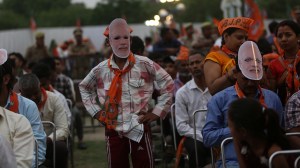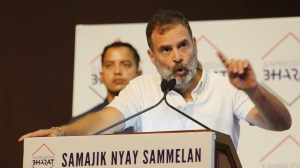- India
- International
Remembering Babuji
For Jagjivan Ram the panacea for social ills lay in integration, not confrontation
July 6 marked the death anniversary of the Dalit leader who emerged from the rural hinterlands of Bihar to serve as a Union minister for more than four decades in independent India. Babu Jagjivan Ram held significant portfolios like defence, railways, agriculture and irrigation and went on to become the first and only Dalit deputy prime minister in the first non-Congress government. When the nation is celebrating the 125th birth anniversary of B. R. Ambedkar, it is appropriate to reflect upon the contribution of his contemporaries who dedicated their lives to the uplift of the erstwhile “untouchables”. Babu Jagjivan Ram, K. R. Narayanan, Jogendranath Mandal, Shaheed Udham Singh and Kanshiram played an important role in the pursuit of social justice.
Born in a rural hamlet Chandwa near Arrah, young Jagjivan Ram completed his elementary education in the district itself. His father Sobhi Ram served with the British Indian army in Peshawar, but is said to have resigned due to some differences. He became a mahant of the Shivnarayani sect, a local cultural and religious group. Sobhi Ram’s involvement with the sect was evident in young Jagjivan Ram’s personality. He took his religious-cultural inspirations to the next level with the creation of Akhil Bharatiya Ravidas Mahasabha in erstwhile Calcutta. He went on to organise a number of Ravidas Sammelans and started observing Sant Guru Ravidas Jayanti in different parts of eastern India. Sant Guru Ravidas is revered till date in parts of northern and eastern India because of his role as a major social reformer from the Dalit community.
Jagjivan Ram’s fight for the independence of the country was never divorced from his struggle for social justice. Apart from being instrumental in the formation of All India Depressed Classes League, he was involved in the Bihar state Harijan Sevak Sangh and many other organisations committed to the cause of social harmony.
In his work on the liberation war of Bangladesh, The Blood Telegram, Gary Bass has called Babu Jagjivan Ram the most “hawkish” defence minister, owing to his role in the victory of India in the war of 1971 that subsequently resulted in the bifurcation of Pakistan and creation of Bangladesh. As communications minister, he nationalised private airlines and extended postal facilities to the remotest corners of India. Little is known about his contributions as union minister for railways. During his tenure, apart from expansion and modernisation of railways, a new post was instituted: The Paani Pandey, who was supposed to provide drinking water to passengers at platforms. Preference was given to candidates belonging to Scheduled Castes in the appointment to this post. As agriculture minister, he assumed charge under compelling circumstances of grain scarcity and ushered the country’s first ever green revolution. He introduced the public distribution system to ensure that food was available to the masses at a reasonable price. He envisioned affirmative action in promotion as he noticed that preferential treatment was required for the first generation beneficiaries of reservation policy as they were unable to cope up with their contemporaries from a privileged social origin.
Another trait of Babuji was his unquestionable faith in democracy. He never lost an electoral battle. It will be a great disservice to the soul of Babuji, if the present generation is not reminded of his unflinching stance during the Emergency. He formed the Congress for Democracy in the wake of the deepest constitutional crisis the nation was about to witness. Atal Bihari Vajpayee brought him in touch with Morarji Desai and subsequently Babu Jagjivan Ram was sworn in as deputy prime minister. The Dalit leadership in the states during this period was largely the product of his art of cultivating leadership at the ground level. His efforts lead to Damodaram Sanjivayya and Bhola Paswan Shastri being sworn in as chief ministers of Andhra Pradesh and Bihar.

Dalit politics in independent India represents a plethora of complications, contradictions, and commonalities. Perhaps, the panacea of social ills lies in integration and not confrontation. Babu Jagjivan Ram’s life exemplifies the efficiency of such a mode: He chose to strive for equity and social justice from within the fold of Hinduism. He was the only leader from the Congress party to be present at the meeting where the VHP was formed. He was vehemently against conversion and felt that it would result in gradual erosion of our civilisational core. His temple entry movement resulted in the opening of the Vishwanath temple in Kashi, Meenakshi temple in Madurai and Jagannath temple at Puri to Dalits. We must analyse the contributions of Babu Jagjivan Ram in a dispassionate manner, instead of restricting his legacy to any specific ideology or political outfit.
EXPRESS OPINION
Apr 25: Latest News
- 01
- 02
- 03
- 04
- 05










































